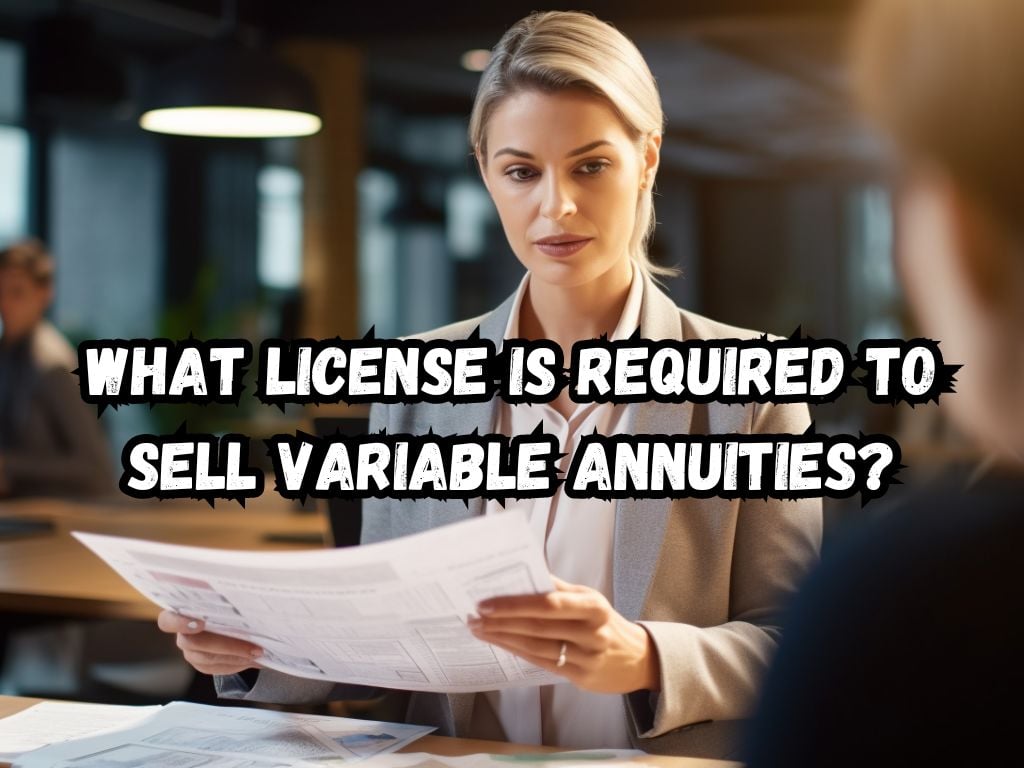Selling variable annuities is a regulated financial activity that requires obtaining the appropriate license.
In this article, we will explore what license is required to sell variable annuities, the role of credit reports in this process, and provide answers to frequently asked questions related to the topic.
What is a Variable Annuity?
A variable annuity is a hybrid financial product that combines features of both insurance and investment.
It allows investors to allocate their contributions among different investment options such as stocks, bonds, and mutual funds. This choice provides the potential for higher returns but also greater risks.
When it comes to licensing requirements, it’s essential to understand the variation in state processes, as this type of product is regulated at the state level.
However, most states require a life insurance or annuities license to sell variable annuities, and many require a securities license, such as FINRA Series 6 or 7.
In some cases, a registered representative or broker-dealer may sponsor an individual, allowing them to offer variable annuities as part of their offerings.
However, in cases where an individual would like to sell annuities on their own without the endorsement of a financial institution, securing an annuities license and passing relevant exams, including Series 6 or 7 tests, is required.

Licensing Requirements for Selling Variable Annuities
To sell variable annuities, one must meet specific licensing requirements set by state regulatory authorities. Generally, two types of licenses are involved: a life insurance license and a securities license.
The life insurance license is necessary because variable annuities contain an insurance component, while the securities license is required due to the investment aspect of these products.
The process of obtaining these licenses involves several steps. Firstly, individuals must complete the necessary pre-licensing education courses specific to their state’s requirements.
These courses cover topics such as annuity regulations, product features, sales practices, and ethical considerations.
After completing the coursework, candidates are required to pass a state-administered licensing exam. The exam tests their knowledge of annuities, regulations, and ethical practices.
How the License Relates to Credit Reports
Before obtaining the licenses necessary to sell variable annuities, regulatory authorities often review the candidate’s credit report that provides information about credit history, employment, and public records, such as bankruptcies and legal actions involving financial practices.
The credit report serves a few purposes – primarily to assure that clients receive services from trustworthy and competent professionals.
A person’s credit report may reflect their behavior concerning debt and financial management.
While a low credit score or missed payments does not necessarily disqualify someone from getting licensed, a negative report could raise concerns about the individual’s ability to handle financial matters in a trustworthy manner.
States will have various criteria. For example, some may be interested in an individual’s debt-to-income ratio, credit usage, and credit application history, while others may focus on delinquent accounts, negative remarks, and collections.
Some states require a minimum credit score, education requirements or obligations, or financial experience to qualify for a license.
A candidate can dispute any incorrect or outdated information that appears on their credit report as part of their due diligence, assisting them in successfully pursuing the licensing process.
Frequently Asked Questions
What happens if I sell variable annuities without the proper license?
Selling variable annuities without the required license is illegal and can result in severe penalties, including fines, license revocation, and legal consequences.
It is crucial to comply with licensing requirements to ensure both legal compliance and the protection of clients’ interests.
Will having a criminal record impact my ability to obtain a license?
Having a criminal record does not automatically disqualify individuals from obtaining a license. The impact of a criminal record on getting licensed depends on the nature and severity of the offense.
Regulatory authorities consider factors such as the time that has passed since the conviction, the type of offense, and rehabilitation efforts.
Can I transfer my license to another state?
In most cases, licenses to sell variable annuities are issued at the state level and are not automatically transferable.
However, many states have reciprocity agreements that allow individuals licensed in one state to obtain a license in another state without needing to complete all the licensing requirements from scratch.
How long does it take to obtain a license to sell variable annuities?
The time required to obtain a license varies from state to state. It typically involves completing the required pre-licensing education, passing the licensing exam, and submitting the necessary application materials.
The entire process can take several weeks to a few months, depending on how promptly the individual completes the required steps and the processing time of the regulatory authority.

Pro Tips
For individuals interested in obtaining a license to sell variable annuities, there are some essential pro tips to consider:
Education is key
Before attempting to become licensed, it’s essential to complete all necessary pre-licensing education course requirements specific to the state.
The coursework usually covers regulations, product features, sales practices, and ethical considerations for annuities. These programs typically span 20 to 40 hours of coursework.
Continuing Education
After obtaining the required licenses, it’s crucial to keep up to date with industry regulations and best practices by participating in continuing education courses.
This ensures that individuals are well-informed about changes in the industry, ethical practices, and product knowledge. Individuals must stay updated to avoid license expiration and potential regulatory consequences.
Network and Find a Mentor
Finding a mentor who is experienced in selling variable annuities can help those new to the industry gain relevant information from a trusted source. Networking with people in the industry can help individuals stay updated on applicable changes, potential pitfalls, and opportunities.
Mind Your Compliance
Ensuring that all necessary disclosures are made and compliance issues are addressed is critical when selling variable annuities.
Annuity salespeople and registered financial advisors are held to a high ethical standard, and client interests must always be prioritized. Individuals must always be willing to ask questions, understand the product, and disclose their licensing status appropriately.
Have a backup plan
In the unpredictable world of annuity sales, it’s beneficial to have a backup plan if business isn’t coming in as expected.
Setting aside emergency funds, maintaining and expanding professional networks, and taking time to assess and reevaluate sales strategies can help individuals stay afloat during lean periods.
Conclusion
Understanding the licensing requirements for selling variable annuities is crucial in maintaining legal compliance and establishing trust with clients.
The process involves obtaining both a life insurance license and a securities license, with credit reports sometimes playing a role.
By adhering to licensing requirements and maintaining a good credit history, individuals can pursue a successful career in selling variable annuities while providing quality advice and services to clients.


 Tags:
Tags:










